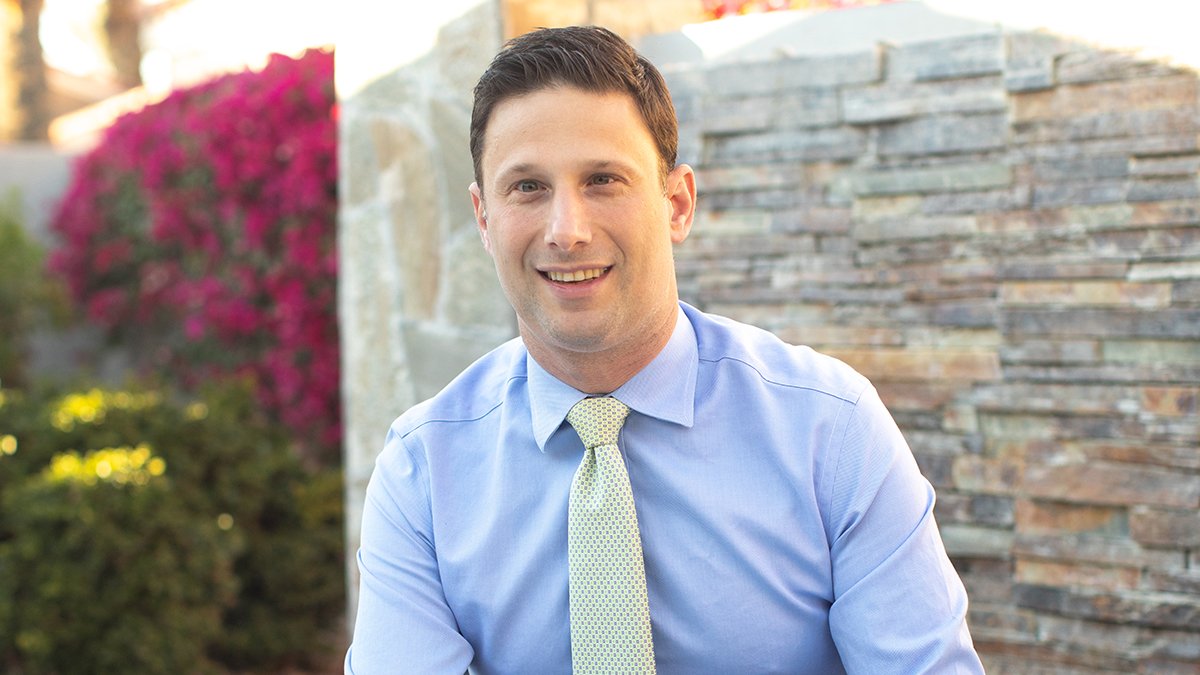Read Full Article HereHow to Craft the Perfect CV
A medical CV is simple in theory. It’s just a factual, chronological inventory of a physician’s credentials and experience. But when the time comes to prepare your CV, this straightforward definition may leave you asking questions: What should you include? What should you leave out? How should you format it?
“The CV’s the one thing that the practice you’re interested in is likely to see about you [to help decide whether to interview you]. Think about how much effort you’ve already put into pre-med, medical school, your boards. You’ve put in all of this work toward your medical career over many years. And now, whether or not you land that crucial interview all rides on your CV,” explains Ben Kornitzer, M.D., chief medical and quality officer of agilon health in Boston. “It’s what will help you get that dream job you’ve worked so hard for. Putting in the extra effort to get it right really matters.”
CV vs. résumé: Tomato, tomato?
Your CV is a practice’s first look at your potential. “Putting in the extra effort to get it right really matters,” says Ben Kornitzer, M.D. – Photo by Brianna Broyles
If you’ve ever prepared a résumé for a summer job or previous career, you may think you’re halfway done creating the perfect CV. But there are important differences between these documents.
For starters, a résumé has more stylistic flexibility. In many non-medical industries, it’s acceptable for entry-level candidates to create a document that broadly describes their traits, interests and accomplishments instead of their chronological work history.
In fact, business candidates are expected to sell themselves by burnishing their own personal brands in their résumé. But in medicine, objectivity and clarity about your credentials and experience are paramount—and even a whiff of embellishment could backfire.
“[Business résumés] use catchphrases and imply skills and motivation to entice the prospective employer. It can become nebulous,” says Robert Marinaro, M.D., a dermatologist with U.S. Dermatology Partners in Sherman and Richardson, Texas. “But a physician CV should be really cut and dry.”
Most résumés don’t exceed two or three pages, even for tenured professionals. But CVs expand as needed to include all the publications, credentials and awards a physician has accumulated over the course of their career—which can yield very extended CVs, especially in academic medicine.
Generally speaking, a long and complete list of your publications, awards, credentials and experiences will make your CV more impressive. This is especially true if you’re focusing on an academic career. Still, length for length’s sake isn’t a good thing. And if you’re looking outside of academic and hospital medicine, hiring physicians and recruiters say to aim for a more compact, targeted document.
“You have to understand your audience,” Kornitzer says. “If you’re talking to a private practice, you may want to give them a very succinct two- or three-page résumé. But if you’re going for a hospital or academic setting, you absolutely should keep the longer form [of a CV]. For most people going into non-academic medicine though, the CV will be relatively short.”
Gary Pinta, M.D., president of Pioneer Physicians Network in Akron, Ohio, says that if you’re hoping to land a job in a private medical group, a long bibliography might even send an unintended message.
“Long lists of publications are nice for academic settings, but if you’ve got 20 or more papers listed, I don’t know if that makes a difference to us [as a private group],” Pinta says. “It actually might imply you’re not interested in seeing patients all the time or that you might intend to leave to teach at a medical school.”
You should also leave out irrelevant non-medical work experiences. This makes it easier for readers to evaluate your CV, especially since they may be professional recruiters and not physicians themselves. “[Even] for someone coming right out of training, I’m not looking at prior work history unrelated to the medical field. You can omit your service industry positions,” says Marissa Phillips, physician recruiter for U.S. Dermatology Partners in Dallas.
And while résumés usually include a personal statement or objective, this isn’t customary in a CV. Some experts think it’s unnecessary. But others argue a personal statement or objective is a résumé custom worth borrowing. It can be an efficient way to tell hiring physicians and recruiters what type of job you’re looking for. “A brief headline of who you are can be really powerful. Practices want to find someone who’s a good fit and will stay for the long run,” Kornitzer says, noting that employers are concerned about the high cost and disruption of physician turnover.
When Pinta’s hiring physicians, he looks for an entrepreneurial spirit, a desire to lead and an interest in practice ownership. A personal statement or objective emphasizing these things can indicate a good fit.
“If candidates say that they want what we have, then I know they understand what the job is,” he explains. “If you’re looking at jobs and like a certain type of job, go ahead and say that it’s your objective or vision. Then [the hiring physician will] know that you know what you’re looking for.” “I like when people include personal interests,” says Gary Pinta, M.D. “Then when I meet them, it gives us something to talk about.” – Photo by Tori Behnke
Your perfect CV tells a story
An objective or personal statement isn’t the only way to make a good impression. You can also include extra details to paint a bigger picture. Go beyond your credentials, experience and accomplishments to tell the story of your path as a physician. But be careful you only include things you want potential employers to know.
For example, if you did medical volunteer work that doesn’t relate specifically to your current interests, it may make sense to omit it. On the flipside, if you had an entry-level job directly related to your current goals, it could be worth including—even if it happened before or during medical school.
Similarly, if you’re applying for a position that would require relocation, make it clear that’s where you consider home, even if it’s been a long time since you’ve lived there.
Editing your publications can also help spotlight those most relevant to your future job. As Vanessa Hettinger, a recruiter for Wilderness Medical Staffing of Spokane, Washington, points out, it’s simply not feasible for a busy recruiter to review every publication in an extensive bibliography. Trimming the fat ensures your expertise won’t be missed.
Kornitzer says curating your CV is like curating your social media posts: It’s all about what you choose both to include and leave out. “Your CV absolutely must be accurate and truthful,” he explains. “But at the same time, it should highlight those aspects of your background you want other people to focus on—just like with Facebook and Instagram, where you post when you are dressed your best or your kids are being really cute. You only have a page or two to convey what you want people to know.”
Format and content: The essentials
Your CV should tell a story, but it shouldn’t literally be a story—or any other nontraditional format. Anyone reqauesting your CV will expect certain conventions. If your approach is too unexpected, your strengths could get lost.
“I have received CVs that were formatted as an autobiography,” says Phillips. “While this is a unique structure for a CV, I’ve found it hard to follow and not a good tactic.”
When it comes to fonts and other stylistic decisions, she adds, “Despite what you may see online, you don’t need to have the prettiest CV with graphics and different colors to be noticed. Keep your CV simple and easy to follow, ensuring that you highlight your accomplishments.”
Classic fonts like Times New Roman and Georgia that are known for readability are always a safe bet. Use 12-point font to ensure the text is easy on even the most tired eyes.
Instead of a narrative format, a CV should follow a relatively simple outline that includes the following:
- Name and medical credentials
- Contact information: Include your address, phone and email at a minimum. Links to a personal website or LinkedIn profile are also appropriate, and if you are not a U.S. citizen, you may wish to add information about your work authorization status.
- Professional statement or objective (optional)
- Academic rank and position (if applicable)
- Military service (if applicable)
- Schools and degrees
- Internships, residency, fellowship
- Certifications and licensures
- Work history: Include brief descriptions of your duties.
- Awards, honors, grants, and memberships
- Publications, presentations, research and related activities
- Personal activities and interests
It’s likely your CV will initially be scanned by a recruiter who is not a physician, and this person may be reviewing dozens of CVs every day. That’s why it’s so important that your credentials and your contact information are front and center. Training and experience typically appear next.
Accurate start and end dates for your education, work history, certifications and licenses are essential.
“[To enable] us to make a quick assessment of whether a physician is qualified for a particular position, they should list their most recent job first, then work backward in time for every subsequent position,” explains Hettinger.
When describing job duties or other highlights, you should use short sentences or fragments. Maintain parallel structure in these sentences and be specific, especially if you’re targeting your first job after residency or fellowship.
“[New graduates, residents and fellows] often omit specifications regarding what their job duties were. We need to know what they did on a day-to-day basis, what procedures they can perform and what type of scenario it was performed in … so we know what they’re capable of,” says Hettinger. “It’s helpful if physicians list their credentials and certifications in their CV. For example, if they have completed an ATLS course, that should be included—as well as the expiration date.”
If you’re still working on a particular certification or credential, it’s a good idea to mention that, along with the date you expect to complete it.
Not every section in a CV template applies to every physician. Omit those that don’t and present your publications, honors, memberships, personal information and activities in the order that best suits your purposes.
Help recruiters help you
Your résumé will likely travel from a recruiter’s inbox to several others as physicians and administrators in the practice review it. Prepare your file to make it easier for everyone in the chain. For starters, get the file format right.
“Always save your CV as a PDF to ensure all parties are able to open the attachment,” recommends Phillips.
Next, label your file to make it easy for recipients to save and find. Avoid file names that only make sense to you, such as “my CV 2021.” Instead, include your full name and credential, along with a date if it’s helpful for you (e.g., “Jane Doe MD CV December 2021”).
If you use any acronyms or abbreviations a recruiter might not understand, take care to include the full term in parenthesis. After all, the first review of your CV might not even be done by a human being. Recruiters often run CVs through software to spot qualified candidates. “If physicians don’t list relevant keywords that could match them to available positions, our software might not signal that they are qualified for the position,” Hettinger explains.
Your CV will probably be printed at some point, too. Add page numbers to make it easy to keep in order.
Avoid easily fixable mistakes
If there’s one thing everyone agrees will hurt your chances, it’s typos. Yet they still happen far too often, recruiters and hiring physicians say.
“I have received many CVs that had simple misspellings that I will correct before distributing the CV to our team,” says Phillips. But don’t count on a kindhearted recruiter. Fix those errors ahead of time by using spellcheck then carefully reviewing for missing words, misused homophones and inconsistent structure.
“Medical training frequently doesn’t emphasize writing skills as much as other graduate disciplines. With physician notes, no one cares if there’s a run-on sentence or typos, but in a CV, it looks really sloppy,” adds Kornitzer. “Get another set of eyes—or a few sets of eyes—on your CV before you send it out. You want it to be as buttoned-up and professional as possible.”
Enlisting friends with good grammar and proofreading skills can help. You can also try the age-old trick of reading your CV aloud or using the read-aloud feature of Word to catch slippery errors.
Another common mistake: using “Dr.” instead of your name followed by M.D. or D.O. This could make it harder to verify your credential. Worse still: using both Dr. and M.D. or D.O. in your name, creating a redundancy that will irritate readers.
Add personal details with caution
“I like when people include personal interests,” says Pinta. “Then when I meet them, it gives us something to talk about.”
Hiring physicians mostly agree. Including personal interests like hobbies, fitness activities or travel adventures can build rapport in the interview process. But certain personal details may be too delicate, controversial or otherwise problematic for your CV.
For example, if religious affiliations limit your availability to work certain schedules or perform certain procedures, it’s best to save those concerns for the interview. You’ll be in a better position to ask for flexibility after an employer realizes you’re a potential match.
Similarly, avoid listing salary expectations on your CV. Waiting until there’s clear mutual interest will put you in a better negotiating position.
Some experts advise listing references on your CV, but this could cause problems if references are contacted too frequently. And if you’re currently employed, a premature reference check by an overeager recruiter could put you in an awkward spot at work.
“Have a half dozen professional references available to vouch for you, but don’t include those in the CV,” Marinaro says. Instead, wait until you’re asked for references, ideally at the last stages of the interview process when you’re sure you want an offer. Then choose two or three from your list who best match the prospective employer’s likely questions and let them know they’ll be contacted.
Mind the gaps
Accurate dates for all your education, credentials, certifications and work history are non-negotiable. Unfortunately, this means recruiters and hiring physicians will notice any unusual gaps and will likely have questions. That’s why Phillips advises candidates to include explanations for any such gaps.
However, some breaks—such as maternity leave, medical leave or a research opportunity—are easier to explain than others. What if you took time off because you had doubts about your specialty or even your decision to pursue medicine? In that case, Kornitzer recommends explaining these complex personal issues in a cover letter or, better still, an interview.
Start early and update often
You likely prepared a CV as part of your residency application, but that document shouldn’t gather dust until you’re ready to search for a job.
“We reach out early if we see potential. We recruit starting year one of residency, so I think residents should have a CV in year one and build on it as they go,” explains Pinta. “We have recruiting dinners a couple of times a year, and sometimes include PGY1s.” Pinta adds that if a resident is prepared early with their CV, it sends a message that they’ll also be prepared in their job.
Besides, as Kornitzer notes, keeping your CV up to date is much easier than waiting until you need it. “You should be updating it constantly,” he says. “Otherwise, you’ll find it hard to remember, ‘What talk did I give last year? Was I on a committee? Did I sit in on a podcast?’”
Updating regularly also allows you to tweak the content to target your current job goals. That starts with formatting, since the style you used in med school may not be right anymore.
And if you develop the habit of regularly updating your CV, it will help you long beyond your first job search. You’ll want to keep it up to date even after your career begins, so you can respond promptly to opportunities.
“You’ll always need to have your CV ready. There’s always going to be a situation where someone will say, ‘I want you to be on a speaker bureau,’ or, ‘I’d like to add you to our medical advisory panel. Can you give me a copy of your CV?’” Marinaro explains, adding that you’ll also need a current CV for administrative purposes, such as applying for a medical license in a different state.
How to Craft the Perfect CV
March 1, 2022








